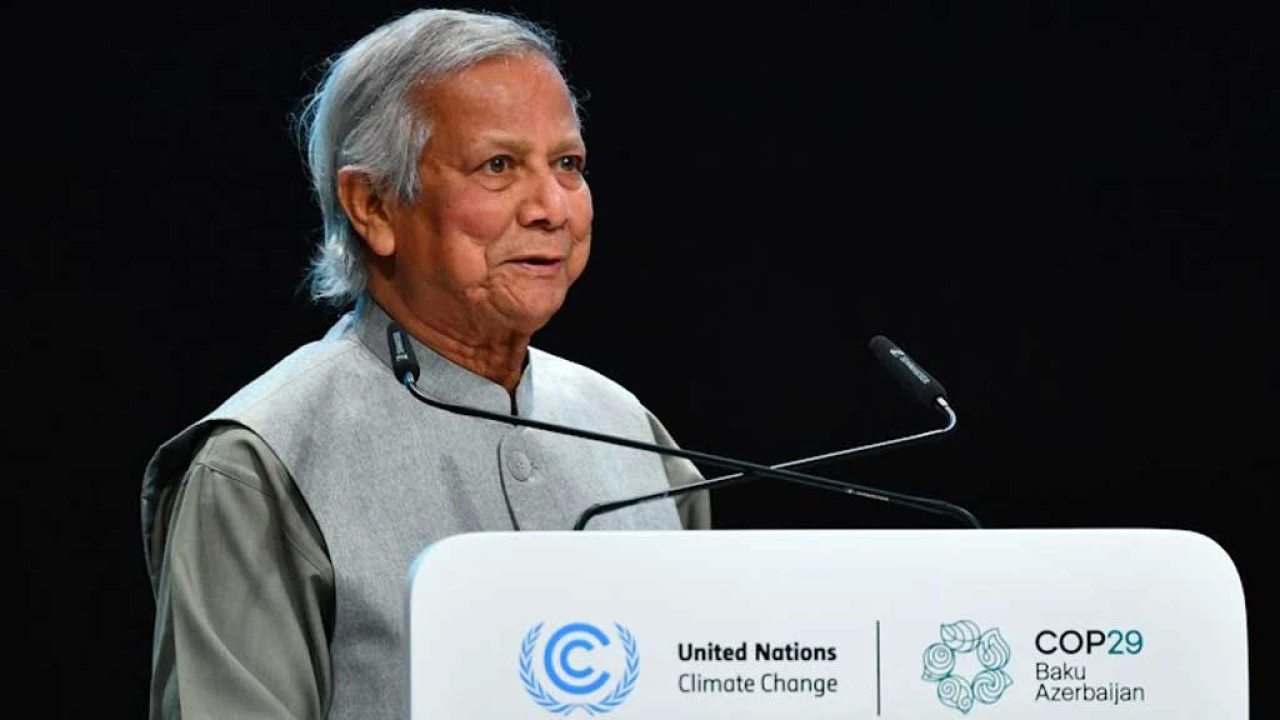Climate Finance
Bangladesh’s interim leader, Muhammad Yunus, has strongly criticized the ongoing dispute over climate finance at the COP29 talks, calling it “humiliating” that poorer nations must fight for the funds to address climate challenges caused by the wealthiest countries.
Yunus, whose country is one of the most climate-vulnerable in the world, expressed his frustration with the fact that countries least responsible for global warming are forced to beg for financial assistance to mitigate the effects of climate change.
Speaking at the UN climate talks in Azerbaijan on Wednesday, Yunus stated, “I think that’s very humiliating for nations, to come and ask for money to fix… (the) problem that others caused for them.”
He questioned why countries like Bangladesh should be dragged into negotiations for financial support, emphasizing the unfairness of the situation. He further criticized the process, saying, “You know the problem… it’s not a fish market,” highlighting the seriousness of the matter, which he believes should not be treated lightly.
Yunus’ comments reflect the growing frustration of developing countries that are demanding substantial financial support from wealthy nations.
These countries are seeking funds to help them adapt to climate-induced disasters and transition to cleaner energy, yet they are often met with resistance from wealthier nations, which have historically contributed the most to global emissions.
As the COP29 talks continue, the urgency for climate action is becoming more apparent. A new report released by the Global Carbon Project revealed that global carbon emissions from fossil fuels have reached record highs, further exacerbating the climate crisis.
The report indicated that to achieve the Paris Agreement’s goal of limiting global warming to 1.5°C, the world must achieve net-zero CO2 emissions by the late 2030s, a decade earlier than initially anticipated.
The negotiations at COP29 are also focused on securing climate finance commitments. Developing countries are demanding at least $1.3 trillion annually—more than 10 times what the wealthiest nations, such as the United States, the European Union, and Japan, currently provide.
However, donor countries are hesitant to make large new financial commitments, citing economic pressures at home and instead suggesting that private sector investments could fill the gap. This approach has been heavily criticized by NGOs, with some calling it “wishful thinking.”
Philip Davis, the Prime Minister of the Bahamas, pointed out the disproportionate burden faced by small island nations, which have spent 18 times more on debt repayment than they have received in climate finance.
He expressed his frustration with the global community’s lack of urgency, saying, “The world has found the ability to finance wars, the ability to mobilize against pandemics, yet when it comes to addressing the most profound crisis of our time, the very survival of nations, where is that same ability?”
With mounting challenges on both climate finance and emissions reductions, several leaders have voiced their concerns.
Albanian Prime Minister Edi Rama abandoned his prepared speech to criticize the lack of meaningful progress, stating that the many speeches on climate change “change nothing.”
He also pointed out the absence of several key leaders at the event, calling it an “insult to injury” for those actively engaged in the negotiations.










